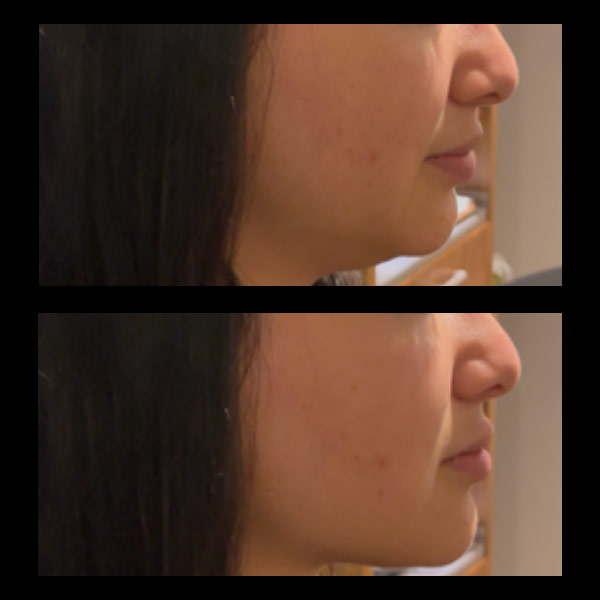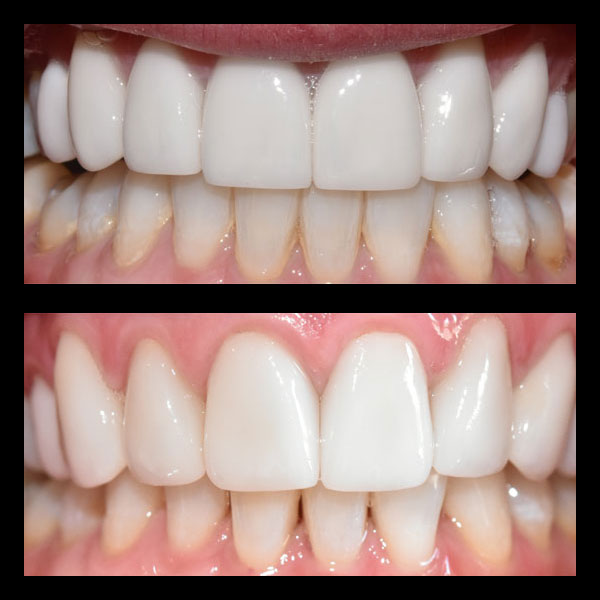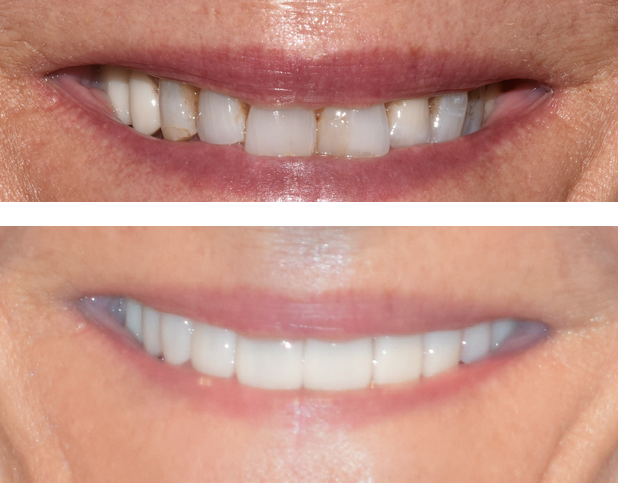More Than Just a Pretty Smile
When you think about dentistry, teeth often come to mind first. But a truly healthy and beautiful smile involves much more than just the teeth themselves. It’s about the intricate system of muscles, nerves, and joints working together in perfect harmony. This is the core principle of physiologic dentistry—a comprehensive approach that looks beyond individual teeth to address the health of your entire oral system. It’s about creating a smile that not only looks incredible but also functions optimally and feels comfortable for years to come.
At Incredible Smiles, we practice physiologic dentistry because we believe optimal oral health is the foundation for lasting cosmetic results. By ensuring your bite is balanced and your jaw muscles are relaxed, we can alleviate a range of issues—from chronic headaches to premature tooth wear—and create a stable foundation for any cosmetic or restorative work you desire.
Understanding the Core: What is Physiologic Dentistry?
Physiologic dentistry, sometimes linked with neuromuscular dentistry, is a specialized field focused on achieving a state of harmony within the masticatory (chewing) system. This system includes your teeth, gums, jaw joints (TMJ), and the muscles of the head and neck. When this system is out of balance, it can lead to a cascade of problems.
Think of it like the alignment of a car. If the wheels are misaligned, you’ll experience uneven tire wear, poor handling, and stress on the car’s frame. Similarly, if your bite is misaligned (a condition known as malocclusion), it forces your jaw muscles to work harder to bring your teeth together. This constant strain can lead to tooth damage, muscle pain, and joint dysfunction. Physiologic dentistry uses advanced diagnostics to identify the ideal, most relaxed position for your jaw and then develops a treatment plan to guide it there, ensuring perfect bite balance and oral function.
Symptoms That Point to a Misaligned Bite
An unbalanced bite can manifest in ways you might not immediately connect to your teeth. Many patients live with these symptoms for years, unaware that a dental solution exists. Here are common indicators that you could benefit from a physiologic dental approach:
Chronic Headaches & Migraines
Tense, overworked jaw muscles can be a primary trigger for tension headaches and even migraines, especially those that occur upon waking.
TMJ Pain and Dysfunction
Clicking, popping, or locking of the jaw, along with pain in the joint area, are classic signs of TMJ disorder, which physiologic dentistry is uniquely equipped to treat. Learn more about our specialized TMJ treatments.
Teeth Grinding (Bruxism)
Your body may subconsciously grind or clench your teeth in an attempt to find a comfortable resting position for your bite. This can cause severe wear and damage. We even offer innovative solutions like Botox for clenching to relax these muscles.
Unexplained Tooth Sensitivity or Wear
When bite forces are unevenly distributed, certain teeth bear too much pressure, leading to chips, fractures, receding gums, and sensitivity.
Neck, Shoulder, and Back Pain
The muscles of the jaw are intricately connected to the postural chain. A misaligned bite can contribute to a domino effect of muscle tension throughout your upper body.
Sleep Apnea and Snoring
The position of the jaw plays a critical role in maintaining an open airway during sleep. Physiologic dentistry can help address airway obstructions that lead to conditions like sleep apnea.
Traditional vs. Physiologic Dentistry: A Comparison
To better understand the benefits, it’s helpful to see how this approach differs from conventional dentistry.
| Feature | Traditional Dentistry | Physiologic Dentistry |
|---|---|---|
| Primary Focus | Individual teeth (health and mechanics). | The entire system (muscles, nerves, joints, and teeth). |
| Bite Evaluation | Often based on the existing bite position. | Uses technology to find the ideal, most relaxed jaw position. |
| Treatment Goal | Repairing damage (e.g., fillings, crowns). | Correcting the root cause of the damage and preventing recurrence. |
| Cosmetic Work | Aesthetic improvements are made to fit the existing bite. | The bite is optimized first to ensure cosmetic work like veneers is stable and long-lasting. |
The Incredible Smiles Approach in Boulder, CO
As a leading dental practice in Boulder, Incredible Smiles integrates physiologic principles into all aspects of our care, from general dentistry to complex full mouth reconstruction. Dr. Priya Uppal and Dr. Lori Kemmet use state-of-the-art technology to diagnose and treat bite imbalances effectively.
Our process involves advanced tools like 3D cone-beam imaging and neuromuscular diagnostics to measure muscle activity and track jaw movements. This data allows us to find the precise position where your jaw can rest without strain. Treatment may involve a custom orthotic to gently guide your jaw into its optimal position, followed by restorative treatments like crowns or orthodontics to create a permanent, stable bite. The result is not just a beautiful smile—it’s a smile that functions in effortless harmony. You can see the stunning results for yourself in our before-and-after gallery.
Did You Know?
The average person can exert over 150 pounds of pressure on their molars when chewing. If your bite is misaligned, this immense force is distributed unevenly, placing specific teeth under extreme stress and increasing the risk of fracture, wear, and nerve damage.
Ready to Find Your Perfect Balance?
If you’re struggling with chronic pain or are seeking a cosmetic transformation that lasts, physiologic dentistry may be the answer. Discover how a balanced bite can improve your health and confidence. Schedule your complimentary consultation with our expert Boulder dentists today.
Frequently Asked Questions
1. What is the difference between physiologic and neuromuscular dentistry?
The terms are often used interchangeably as they share the same core philosophy: establishing a harmonious relationship between the jaw joints, muscles, and teeth. Both focus on finding the optimal resting position of the jaw to resolve functional issues. At Incredible Smiles, we use these principles to guide our comprehensive treatments.
2. Is physiologic dentistry only for people with TMJ pain?
While it is an excellent solution for TMJ disorders, physiologic dentistry benefits a much wider range of patients. It’s for anyone experiencing symptoms of a misaligned bite (like headaches or tooth grinding) or for individuals planning major restorative or cosmetic work. Creating a stable bite foundation ensures the longevity and success of any dental investment.
3. How do I know if I’m a good candidate?
The best way to find out is through a comprehensive consultation. If you experience any of the symptoms listed above—from jaw clicking and headaches to worn-down teeth—you are likely a candidate. We invite you to our Boulder office for a complimentary evaluation where we can discuss your concerns and determine if this approach is right for you. For more general questions, feel free to visit our Q&A page.
4. What does the treatment process involve?
The first step is a thorough diagnosis using advanced technology to map your unique bite and muscle function. The initial treatment phase often involves wearing a custom-made orthotic to gently guide your jaw into its ideal physiologic position. Once symptoms are relieved and the bite is stabilized, a long-term solution is developed. This may include bite adjustments, orthodontics, or restorative treatments like crowns to permanently support the healthy new bite.
Glossary of Terms
Bite Balance (Occlusion): The way your upper and lower teeth make contact when you bite or chew. In physiologic dentistry, the goal is to achieve an occlusion that is stable and doesn’t strain the jaw joints or muscles.
Bruxism: The medical term for the involuntary habit of grinding or clenching the teeth, which often occurs during sleep and can lead to significant dental damage.
Malocclusion: The misalignment of the teeth and jaws. This is what physiologic and orthodontic treatments aim to correct.
Neuromuscular Dentistry: A field of dentistry focused on the relationship between the nerves, muscles, and jaw position. It shares fundamental principles with physiologic dentistry.
Orthotic: A custom-made removable appliance, similar to a mouthguard, designed to reposition the jaw into its optimal physiologic position and allow the muscles to relax.
Temporomandibular Joint (TMJ): The hinge joint connecting your jaw to the temporal bones of your skull, located in front of each ear. It lets you move your jaw up and down and side to side, so you can talk, chew, and yawn.








